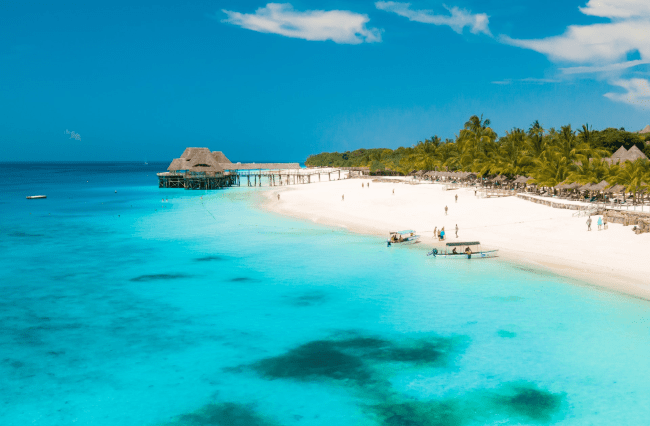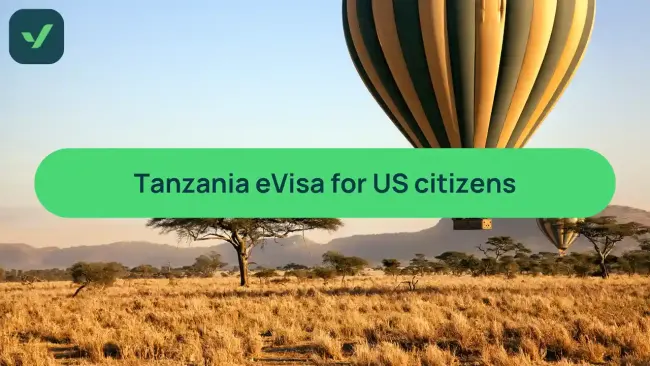
Tanzania
Welcome to Tanzania
Are you trying to figure out if you need a visa for your trip to Tanzania? Let's help you understand whether a visa is necessary, identify the right one for your travel plans, and guide you through the application requirements. We're here to make the visa application process less of a headache, freeing you up to focus on planning your trip to Tanzania.
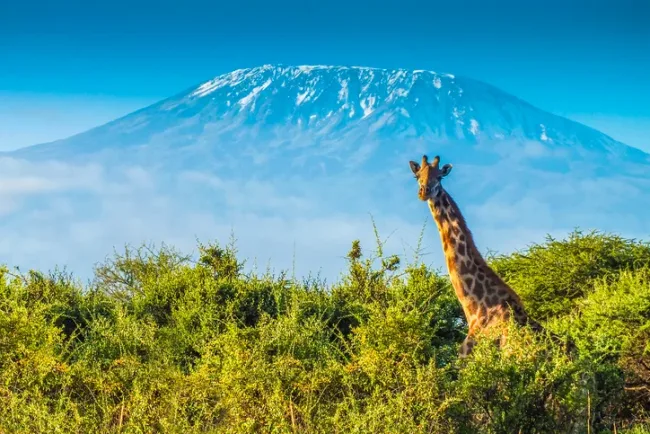
What's a Tanzania Tourist eVisa, and who's it for?
Who's the Tanzania Tourist eVisa for?
Nationals from more than 150 countries, including Australia, Libya, Brazil, Canada, China, Angola and more.
Use the Visa Checker Tool to find out if you need to apply for one.
Who's not eligible for a Tanzania Tourist eVisa?
-
Individuals from countries with visa-free entry agreements with Tanzania, including Antigua & Barbuda, Brunei, Ghana, Jamaica, Ghana, Hong Kong, and more.
-
Travelers from countries that fall under the referral visa category have to go through a different application process, which includes getting approval from the Tanzanian government before their visit.
-
Stateless individuals and refugees holding Vienna Convention documents also require a referral visa and must follow a specific application process.
What's the purpose of the Tanzania Tourist eVisa?
It's designed for tourism and short-term business purposes. It's also used for visiting family and attending events.
How long can you stay with a Tanzania Tourist eVisa?
With the tourist eVisa, you can stay in Tanzania for up to 90 days per entry on a single-entry basis. The United States has a special arrangement with Tanzania. US citizens can apply for a multiple-entry visa valid for 1 year.
What's a Tanzania Business eVisa, and who's it for?
Who's the Tanzania Business eVisa for?
Foreign visitors planning to engage in short-term business-related activities in Tanzania.
Who's not eligible for a Tanzania Business eVisa?
Anyone who's looking to take up employment with a Tanzanian company. This visa isn't designed for long-term employment or projects extending beyond the scope of short-term business activities.
What's the purpose of the Tanzania Business eVisa?
It covers a range of activities like attending meetings, conducting professional roles like auditing, carrying out special assignments (like machine repairs or running short-term training), or participating in any lawful business according to Tanzanian laws.
How long can you stay with a Tanzania Business eVisa?
The Tanzania Business eVisa allows for a single entry into the country with a stay of up to 90 days per entry. It's not extendable unless the Commissioner General of Immigration grants special permission.
What's a Tanzania Volunteer eVisa, and who's it for?
Who's the Tanzania Volunteer eVisa for?
Foreign travelers looking to engage in volunteer work within the country, typically with non-profit organizations, charities, or humanitarian causes.
Who's not eligible for a Tanzania Volunteer eVisa?
-
Individuals without a confirmed volunteer placement, those not meeting the financial sufficiency criteria, or those lacking a valid passport and required vaccinations may not be eligible.
-
Visitors aiming to engage in paid work or activities outside of volunteering will need to consider different visa categories.
What's the purpose of the Tanzania Volunteer eVisa?
To allow international volunteers to legally participate in volunteer activities with registered non-profit organizations in Tanzania. These activities can range from educational, environmental, and health-related projects, to any work aimed at community development and support.
How long can you stay with a Tanzania Volunteer eVisa?
The validity and length of stay depend on the type of volunteer eVisa granted. A single-entry volunteer eVisa typically allows for a stay of up to 90 days, while a multiple-entry visa might permit longer periods, depending on the specific terms of issuance.
What's a Tanzania Transit Visa, and who's it for?
Who's the Tanzania Transit Visa for?
Travelers who need to pass through Tanzania to reach another destination without the intention of staying for tourism or business.
Who's not eligible for a Tanzania Transit Visa?
-
If you plan to stay in Tanzania for purposes other than transiting or if you're from a country that already has visa-free access for longer stays, such as for tourism or business, you might not need a transit visa.
-
If your stay involves activities other than mere transit, such as employment or long-term visits, you'll need a different type of visa.
What's the purpose of the Tanzania Transit Visa?
To allow travelers to cross through Tanzania when their journey involves entering from one point and leaving from another within a short timeframe.
How long can you stay with a Tanzania Transit Visa?
Typically, the business visa permits a stay of up to 90 days.
What's a Tanzania Referral Visa, and who's it for?
Who's the Tanzania Referral Visa for?
Nationals from specific countries who can't obtain an eVisa and need special clearance before traveling to Tanzania. The special clearance involves getting approval from either the Commissioner General of Immigration or the Commissioner of Immigration in Zanzibar.
These countries include Afghanistan, Azerbaijan, Bangladesh, Chad, and several others.
What's the purpose of the Tanzania Referral Visa?
To ensure a higher level of security and immigration control for individuals from countries that Tanzania has identified as requiring additional checks.
How long can you stay with a Tanzania Referral Visa?
The duration of stay will depend on the specific type of visa issued after the referral process is completed. Typically, visas can be issued for the duration necessary for the visitor's purpose in Tanzania, whether for tourism, business, or other reasons. However, the exact length of stay is determined as per the visa granted upon approval of the referral.
What are the Tanzanian long-term visa options and who are they for?
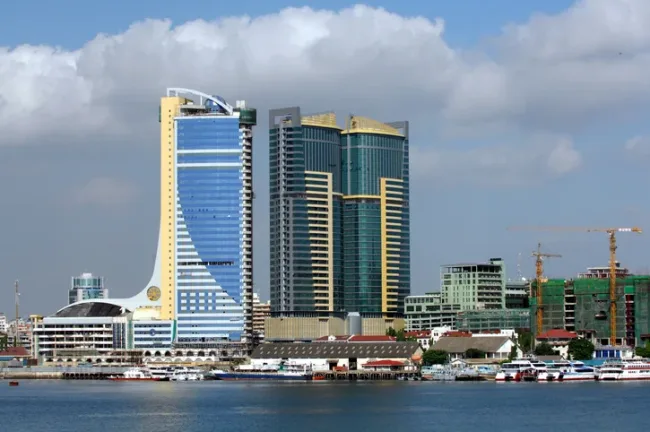
Tanzania offers a variety of long-term visa options to cater to the different needs of those looking to stay in the country for extended periods. Here are some of the more popular ones:
-
Gratis visa: A unique category often issued to individuals visiting Tanzania under specific diplomatic or official capacities, or sometimes to those undertaking certain types of voluntary work.
-
Class A residence permit: Aimed at investors bringing financial resources into Tanzania to invest in various sectors. It's perfect if you're looking to create jobs and generate wealth within the country.
-
Class B residence permit: Designed for foreigners employed by a Tanzanian company. If you're generating income from within Tanzania, this is the visa you'd need to apply for, usually before arriving in the country.
-
Class C residence permit: Issued to foreigners entering Tanzania for a prolonged period for reasons other than investment or employment. This includes students, volunteers, family dependents, missionaries, researchers, or retirees.
It's important to note that we currently don't handle long-term visa applications. For information on how to apply for them and specific requirements for each type of visa, we recommend visiting the Tanzania Ministry of Home Affairs website.
Staying healthy in Tanzania: Here's what you need to know
To make the most of your trip, keeping on top of your health is key. Here's how you can stay healthy and safe during your Tanzanian adventure.
Make sure to stay updated on routine vaccines
-
Make sure you're up-to-date on routine vaccines before every trip. These vaccines include measles-mumps-rubella (MMR), diphtheria-tetanus-pertussis (DPT), varicella (chickenpox), polio, and your yearly flu shot.
-
Hepatitis A vaccine is recommended for most travelers, including those visiting friends and relatives, those staying in hotels, or those eating or drinking in urban and rural areas.
-
Hepatitis B vaccine is recommended for travelers who might have sex with a new partner, get a tattoo or piercing, or have any medical procedures.
-
Consider getting the typhoid vaccine, especially if you're staying with friends or relatives, visiting smaller cities or rural areas, or if you're an adventurous eater.
-
Rabies vaccine is recommended for travelers involved in outdoor and other activities (such as camping, hiking) that put them at risk for animal bites. It's also recommended for people working with or around animals (such as veterinarians, wildlife professionals, and researchers) and people taking long trips or moving to Tanzania.
-
Stay informed about Tanzania's COVID-19 guidelines, including any requirements for quarantine, testing, or vaccination proof, by consulting your airline or the Ministry of Health website.
Medical facilities
-
While Tanzania has a mix of public and private healthcare facilities, medical services are particularly better in larger cities like Dar es Salaam.
-
Medical facilities may be more limited in remote areas.
-
In case of emergency, calling 112 will connect you to ambulance services.
-
Pharmacies are readily available in urban areas and offer a wide range of over-the-counter medicines. If you need specific prescription meds, it's best to carry your own.
Health insurance
It's essential to have travel health insurance for your entire trip.
Healthcare, especially in private facilities, can get expensive. Make sure your insurance covers considerable health costs, including if you need to be evacuated for medical care.
Check with your insurance company to ensure your coverage is thorough, especially for:
-
Refunds for any travel mishaps, like cancellations or delays.
-
Costs for medical treatments and possible medical evacuation.
-
Compensation for lost baggage.
Things to be aware of when visiting Tanzania
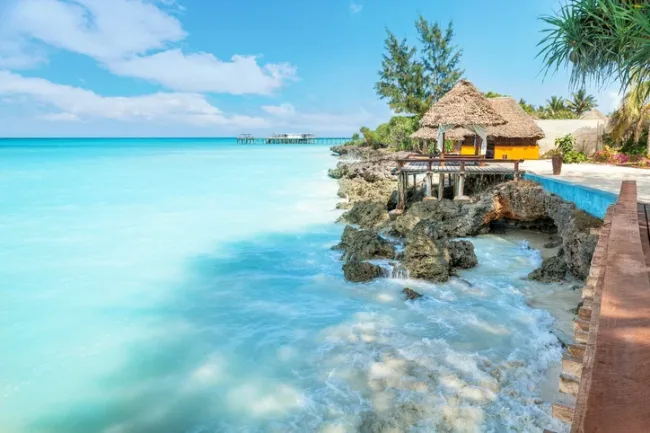
When visiting Tanzania, being mindful of specific considerations beyond visa and health requirements will enrich your travel experience and ensure a smoother journey.
-
Wildlife and environment: Respect wildlife regulations, especially in national parks and conservation areas. Feeding or approaching wildlife can be dangerous and is often illegal. Tanzania's natural beauty includes mountainous regions and coastal areas, so prepare for your activities by considering the weather and terrain.
-
Extreme heat: Tanzania's equatorial location means the sun can be intense. Drink plenty of water throughout the day and use sun protection. During the hottest parts of the day, seek shade or stay indoors to avoid heat exhaustion.
-
Drink bottled or treated water: Stick to bottled water, and avoid tap water and ice in drinks unless you're sure it's safe. For added precaution, use water purification tablets or a water filter for drinking water if bottled water isn't available.
-
Food safety: Consuming street food can be a delightful experience, offering insight into local cuisines. Choose vendors who have high turnover and where you can see food being cooked to order.
-
Observe local laws and customs: Using your left hand to eat, give, and receive items is considered impolite. Dress modestly, especially when visiting rural areas or places of worship. Public displays of affection are frowned upon. Learning a few basic Swahili phrases can be greatly appreciated by locals.
Medication for personal use
Need to bring medication along? Keep these guidelines in mind:
-
Declare all medications: Always inform the authorities about any medications you're carrying, particularly prescription or controlled substances.
-
Keep medications in original packaging: Your medications should remain in their original container, complete with a label that shows they're prescribed to you.
-
Carry a prescription or doctor's note: It's wise to have documentation from your doctor explaining your need for the medication, like a note or an up-to-date prescription.
-
Check for restrictions: It's a good idea to check if your medications are on Tanzania's restricted or prohibited list. Contact your nearest Tanzanian embassy for more information.
-
Pack only what you need: To prevent any issues, bring only the amount of medication necessary for your stay.

 Australia ETA Online
Australia ETA Online
 United Kingdom ETA
United Kingdom ETA
 India Tourist eVisa
India Tourist eVisa
 Canada ETA Visa
Canada ETA Visa
 Turkey eVisa
Turkey eVisa
 Egypt eVisa
Egypt eVisa
 Singapore SG Arrival Card
Singapore SG Arrival Card
 Indonesia eVoa Visa
Indonesia eVoa Visa
 Aruba ED Card
Aruba ED Card
